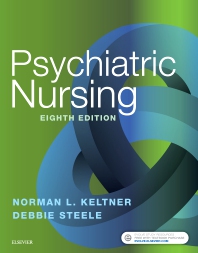Books in Psychiatric mental health
Books in Psychiatric mental health
- 1st Edition
- June 28, 2019
- Katie Evans + 3 more
- English

Psychiatric and Mental Health Nursing in the UK
- 1st Edition
- June 28, 2019
- Katie Evans + 3 more
- English

Psychiatric and Mental Health Nursing in the UK
- 1st Edition
- June 28, 2019
- Katie Evans + 3 more
- English

Psychiatric and Mental Health Nursing in the UK
- 4th Edition
- February 19, 2019
- Edwin Roland van Teijlingen + 1 more
- English

Psychology and Sociology Applied to Medicine
- 8th Edition
- February 2, 2019
- Elizabeth C. Arnold + 1 more
- English

Interpersonal Relationships
- 8th Edition
- June 13, 2018
- Norman L. Keltner + 1 more
- English

Psychiatric Nursing
- 6th Edition
- February 20, 2018
- Margaret Jordan Halter
- English

Varcarolis' Manual of Psychiatric Nursing Care Planning
- 1st Edition
- January 12, 2018
- Elsevier Inc
- English

Nursing Key Topics Review: Mental Health
- 8th Edition
- July 11, 2017
- Margaret Jordan Halter
- English

Varcarolis' Foundations of Psychiatric-Mental Health Nursing
- 1st Edition
- Volume 51-2
- May 27, 2016
- Deborah Antai-Otong
- English
